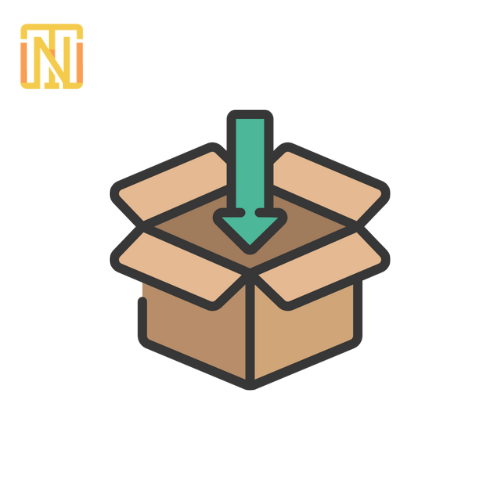
Amazon FBA vs. Shopify: Which Platform is Best for Your Business?
Introduction:
In today’s digital age, there are no limits to what an e-commerce business can do. However, one might get a little confused as to which one to decide considering the number of choices available. Let us now take a look at one of the most common disputes: Amazon FBA vs. Shopify. Which one suits you?
Or do you just want to provide an easy, hassle-free way to sell to millions of customers overnight? These are truly two compelling options, but very different business models or objectives will serve as guiding situations to help you make the decision.
Understand the most important distinctions between Amazon FBA and Shopify in this guide so that you can fully understand the relative advantages and disadvantages of each. Finally, you will know which of the two platforms can help your business grow. This comparison will enlighten end users, whether they fancy starting their first business or scaling their existing one.
What is Amazon FBA?
The FBA acronym stands for Fulfillment by Amazon, meaning that the vendor can keep the items in the fulfillment centers of Amazon. Amazon will handle storage, packaging, and shipping to the customers, as well as customer service regarding returns. It is a full-service program that lifts the load of logistics and customer services from the seller so that he or she can be free to focus on products, marketing, and everything else.
What is Shopify?
Shopify helps you set up your own online store, and this is their effective e-commerce solution. This is a very straightforward website builder and product management solution considering that they have so many built-in tools for selling products, tracking inventories, processing payments, and also handling shipping. This one is for those who want a branded standalone store and don't want to deal with marketplaces when selling their products.
Key Differences: Amazon FBA vs. Shopify
It's very important when choosing between Shopify vs. Amazon FBA to know how each option is best suited for the specific industry in which he is doing business. Here are the basic differences:
1. Control Over Branding and Customer Experience
Branding and customer experience will be quite different thing between Amazon FBA and Shopify dropshipping. The basic fact about Amazon FBA is that you have very little presence in branding and customer experience.
Amazon FBA:
Amazon FBA allows you access to selling on one of the world's largest marketplaces, there's limited control to be exerted over your branding. Your products would line up next to thousands and thousands of other items while Amazon is responsible for almost all of the customer contacts. It's a drag that you're essentially trying to stand out in such a vast pool of competition from other sellers.
Shopify:
Shopify has full control over brand and website design, everything is personal. One has a store that no one else can have, and customer experience-from browsing to checkout is completely in their hands. This can be a huge plus for those kinds of businesses who would like to keep a customer base loyal and build a unique brand.
2. Ease of Setup:
Amazon FBA:
The effortless process of setting up an Amazon FBA account: Just list your product ship it to the warehouses, and sell. Everything will take on from there- gives you the peace of mind of an all-affair-under-one-roof. However, such easy use comes at a price: quite possibly fees, which we will discuss later.
Shopify:
Setting up a Shopify store involves more learning as you will have to choose a plan and theme, create products and payment gateways, and finally logistics. While it renders a good resource to get newcomers sailing, this will take more effort and time to bring repetition-creating relative to Amazon FBA.
3. Costs and Fees.
Amazon FBA Fees:
Amazon FBA charges several fees, including:
- Referral Fees: Based on the product category, this fee is a percentage of each sale.
- Fulfillment Fees: Payable to Amazon for storing, packing, and shipping of the products.
- Monthly Storage Fees: Charged for holding stock of products in Amazon's warehouses.
Fees are cumulative very fast and the stock does not seem to sell speedily, although that is where Amazon fees get your benefit if you're going to sell volumes of products and not do the fulfillment yourself.
Shopify Fees:
Shopify charges based on a plan, starting from $29/month. There will be also fees to be paid for applications and themes according to your needs of a store. And third, you pay fees by Shopify on transaction fees when you do use not Shopify Payment. In other words, Shopify charges nothing as the fee for fulfillment if not to use Shopify Fulfillment, however, logistics is usually the very important thing when choosing how to transport the goods.
4. Shipping and Fulfillment
Amazon FBA:
Amazon handles all the fulfillment process on your behalf. That encompasses warehouse storage, order packaging, and shipping products directly to the customers. A giant network of shipments lets you benefit from super-speed deliveries with Amazon Prime.
Shopify Fulfillment:
Shopify has various options around order fulfillment that range from its fulfillment service to third-party fulfillment services such as ShipBob or ShipMonk to even doing it yourself. This flexibility can introduce increasing complexity and invoke the possibility of delays.
5. Marketing and Traffic
Amazon FBA:
With Amazon FBA, it is amazing as Amazon itself has an audience of millions. Daily millions visit like buyers to make purchases on Amazon. However, it also means that there would be thousands of other competitors selling the same, hence getting accepted can only be through effective ads by Amazon with a winning listing.
Shopify:
Shopify allows much more in terms of how you bring traffic into your store, like how one can have a whole marketing strategy on SEO, Facebook and Instagram advertisements, influencer marketing, email list building, and so on. Traffic is truly yours to generate, unlike in Amazon where the buyers are already in the house.
Amazon FBA vs. Shopify: Which Platform is Best for Your Business?
These questions will help you determine the best among Amazon FBA and Shopify in terms of business suitability. Here they are broken down for you to choose which is appropriate for your business.
1. Which Platform is Best for New Sellers?
Suppose you are a new seller who is not more than one day old in e-commerce and logistics. In that case, you should choose Amazon FBA since it is what you call turnkey and lets you concentrate on getting out your marketing while everything else is handled by the behemoth known as Amazon. Then again, there's the massive market advising you of the vast base of customers you'll get access to.
If you're willing to invest more into creating a unique brand for the long term, then the other likely better option is Shopify. With Shopify, you will have far more control over how your store's design looks, and what kind of branding it does, right down to the sort of experience the customers will have while shopping with you. However, the downside is that therefore more effort would be needed to attract potential customers.
2. Which Platform is Better for Dropshipping?
For dropshipping, the sellers prefer Shopify since it is integrated with most of the dropshipping apps like Oberlo or DSers. With Shopify dropshipping, the seller doesn't need to care about stock management or stock orders, the supplier does it all.
Purchasing from the right suppliers and using Amazon's FBA to fulfill your orders is a great path to becoming a successful drop shipper. Of course, knowing that Amazon's policies can be pretty rigid may even make dropshipping harder in comparison with Shopify.
3. Which Platform Provides Better Customer Service?
- Amazon FBA: When using Amazon FBA, Amazon assumes all complaints, returns, or inquiries from a buyer on an order shipped to them via FBA-you don't have to bother about any of these. Customer interactions, though, tend to sound more generic than personal.
- Shopify: This is totally up to you, customer service; you will be able to create such strong relationships with the customer but, of course, it means that even more resources and effort go into ensuring rather smooth support.
4. Which is More Scalable?
Scalability exists for both sites. Amazon FBA can scale out quickly as product inventory continues to increase, and millions of customers are sold to. However, sounding different from the crowd can be more difficult.
Shopify features scale-up as well, but here one would be required to do more in terms of marketing and traffic to one's store while allocating more infrastructure concerning high order volume. In addition, Shopify provides much more flexibility concerning how flexible one can be regarding growth management.
Conclusion
The choice between Amazon FBA or Shopify is purely based on what your business priorities are. If you want a hands-off solution that can reach millions of customers overnight and have more time to devote to product development, you will find that with Amazon FBA. If you are interested in building a long-term brand and want total control over your website and customer experience, perhaps Shopify may be your choice.
The main difference is the extent to which you want control over your business, budget, and marketing strategy. They both have different advantages, therefore, careful thought should be taken based on your goals and resources before making your choice.
FAQs
1. Which platform is better, Amazon FBA or Shopify?
It depends on your business goals. Amazon FBA offers built-in traffic, while Shopify gives you full control over branding and marketing.
2. Is Amazon FBA or Shopify cheaper to use?
Amazon FBA can be costlier due to fees, while Shopify has a monthly subscription cost, but both have different pricing models based on your needs.
3. Can I use both Amazon FBA and Shopify together?
Yes! Many sellers use Amazon FBA for fulfillment and Shopify for managing their own branded online store.
4. Which platform offers better scalability?
Shopify allows more customization and scalability for long-term growth, while Amazon FBA offers ease of expansion with minimal setup.
5. Which platform is more suitable for beginners?
Amazon FBA is easier for beginners due to its large customer base and simplicity, while Shopify requires more effort in building traffic and branding.




